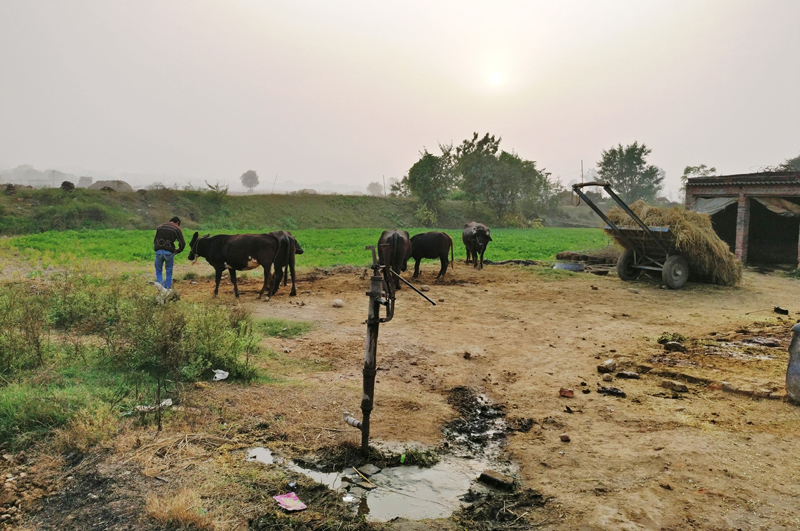Back-to-back landmark decisions
3 lakh population of 3 Jammu distts to benefit
Sanjeev Pargal
JAMMU, Feb 21: In back-to-back landmark decisions ahead of the general elections and just days before the imposition of Model Code of Conduct (MCC) that will benefit large number of people, the State Administrative Council (SAC) headed by Governor Satya Pal Malik today formally approved the proposal for granting reservations to the people living within six kilometers of the International Border (IB) by bringing them under the ambit of three percent reservations in Government jobs, educational institutions etc available to the people living along the Line of Control (LoC) with Pakistan under the ‘ALC Category’.
The decision comes just a day after the Union Cabinet approved the State Government proposal granting 10 percent reservation to Economically Weaker Sections (EWS) among General Categories and reservations in promotion to Scheduled Castes and Scheduled Tribes.
The SAC formally cleared the draft amendments in `Jammu and Kashmir Reservation Act-2014′ to extend benefits of reservations to the people living on the IB with Pakistan. President Ram Nath Kovind would now promulgate the Ordinance on the basis of proposal to be submitted to him by the Union Ministry of Home Affairs based on the SAC recommendations as the State was under the spell of Central Rule.
Excelsior had on February 14 exclusively reported the State Government’s approval to the proposal for granting reservations to the border people of Jammu, Samba and Kathua districts, all falling in Jammu region, living along the IB. Only these three districts in J&K shared IB with Pakistan while twin border districts of Rajouri and Poonch in Jammu region, Baramulla and Kupwara in Kashmir and Kargil and some parts of Leh in Ladakh division share LoC with Pakistan.
The International Border covers a population of around 3 lakh and comprised about 350 villages in three districts of Jammu, Samba and Kathua, which had been denied reservations by the previous Governments though the people living along LoC with Pakistan were enjoying benefits of reservations.
“The amendment will meet the long-standing demand of the people residing in the areas adjoining International Border for their overall socio-economic and educational development,” an official statement issued after the SAC meeting, said.
It added that the demand was examined in consultation with J&K State Commission for Backward Classes and it was felt that persons residing in the areas adjoining IB are similarly situated as the persons residing in the areas adjoining LoC so far as their socio-economic backwardness is concerned and thereby qualify for inclusion within the ambit of reservation at par with persons living in areas adjoining the LoC.
List of about 350 villages, which will qualify for reservations, will be notified while framing rules once the Ordinance is promulgated, the official statement said.
As per the existing reservation rules, 3 percent reservation is admissible to people residing on LoC in direct recruitment. Reservation of 3 percent is also available to the people residing on LoC in Government jobs and professional institutions.
With this amendment, LoC and IB will be considered as one category for purposes of seeking reservation in direct recruitment and in promotions. This will benefit a large number of people residing in the areas adjoining IB to reap the benefits of reservation like other categories.
Jammu and Kashmir now has 3 percent reservations for the people living on LoC and IB, 10 percent for Economically Weaker Sections among Upper Castes, 8 percent for Scheduled Castes (SCs), 10 percent for Scheduled Tribes (STs), 20 percent for Resident of Backward Areas (RBA), 2 percent for Other Social Castes (OSCs) and 3 percent for Paharis, totaling 56 percent.
“The Government has undone the discrimination meted out to the people of International Border in terms of reservations by bringing them at par with the people living on the LoC,” sources said.
A proposal for bringing the people of IB under the ambit of reservations at par with LoC was submitted to the SAC by Social Welfare Department on the basis of recommendations made by the Backward Classes Commission.
Presently, the IB people have been brought at par with the LoC people under three percent ‘ALC reservation’ category but there was a separate proposal prepared by the Backward Classes Commission for giving four percent reservations to the people of IB while keeping three percent reservations separately for the people living on LoC.


